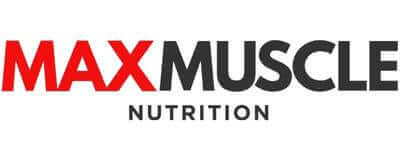Hello Max Muscle Family,
Strength training for children and adolescents is gaining recognition as an important component of a balanced fitness regimen. Contrary to common myths, with proper guidance, strength training can be safe and beneficial for young individuals. From enhanced muscle strength and bone density to improved sports performance, the rewards are many. Let’s explore the essential guidelines and best practices for introducing strength training to kids and teens.
Understanding the Basics of Strength Training for Youth

Strength training, also known as resistance training, uses weights, resistance bands, or body weight to build strength and endurance. It’s vital to differentiate between strength training and weightlifting or bodybuilding, which are not recommended for younger age groups.
What’s the Difference Between Weightlifting and Strength Training? Learn more HERE
Benefits of Strength Training for Youth:

- Enhances muscle strength and endurance for better sports performance.
- Promotes healthy bone development through resistance stress.
- Improves body composition and supports healthy weight maintenance.
- Boosts confidence and self-esteem, helping young athletes feel accomplished.
Strength training for kids: Here's what you need to know
Guidelines for Safe Strength Training

Adhering to these safety guidelines ensures a positive and injury-free experience:
- Start with a Medical Clearance: Consult a healthcare provider to rule out any conditions that may affect participation.
- Supervision by Qualified Professionals: Always have a knowledgeable coach or trainer to guide and monitor sessions.
- Focus on Technique, Not Weight: Prioritize learning proper form over lifting heavy weights.
- Gradual Progression: Only increase resistance once proper form is mastered.
- Include a Comprehensive Warm-Up and Cool-Down: Prepare the body for exercise and aid recovery post-session.
Learn the Dos & Don'ts: Strength training for kids
Developing a Balanced Program

An effective youth strength training program incorporates the following:
- Variety: Include exercises targeting all major muscle groups.
- Fun and Engagement: Make sessions enjoyable with activities they love.
- Rest and Recovery: Allow one to two days off each week for muscle recovery.
Beginner-Friendly Exercises:
- Bodyweight squats.
- Plank holds.
- Resistance band rows.
Elevate Your Young Athlete's Performance with Elite-Level Training! Parents, schedule a FREE in-store consultation to see if our program is right for your child.
Conclusion
Strength training can be a valuable addition to a youth fitness program when done responsibly. It promotes healthy physical development, builds confidence, and fosters lifelong exercise habits. By following these best practices, parents and coaches can help young athletes thrive in a safe and supportive environment.
Experts say strength training is fine for kids- Learn more HERE
Encourage your young athlete to embrace strength training as part of their fitness journey. Share your experiences and strategies with our community @maxmuscleatl and inspire others to make health and fitness a family priority.
Ready to take the next step?
Visit Max Muscle Sports Nutrition - Stone Mountain for expert advice and high-quality products to support your performance goals!
Mike Pringle - Author
Mike Pringle, a former pro football player with 15 years of experience, is a certified fitness trainer, nutrition coach, and owner of Max Muscle Sports Nutrition - Stone Mountain. With over 13 years of experience, Mike is passionate about guiding everyone—from beginners to elite athletes—on their health and fitness journeys.

